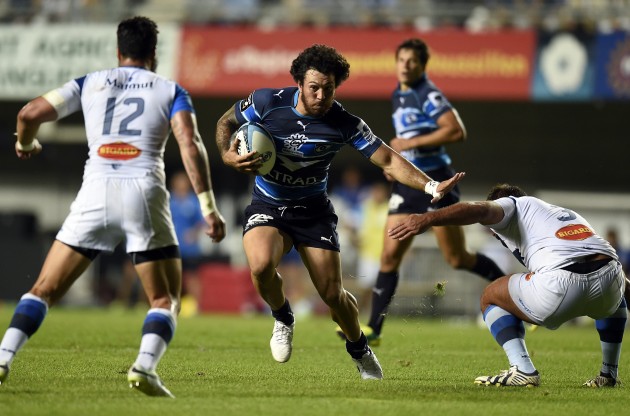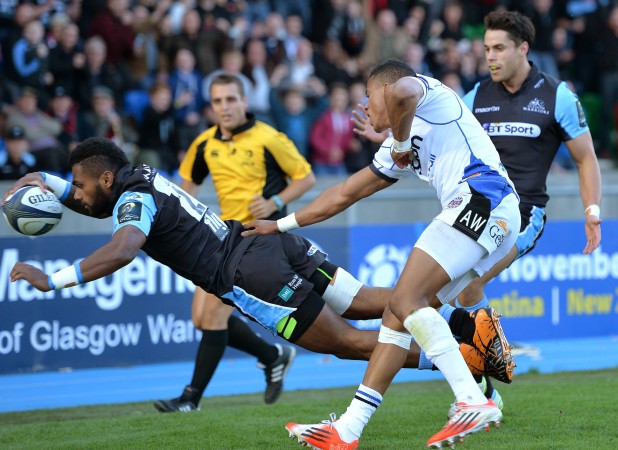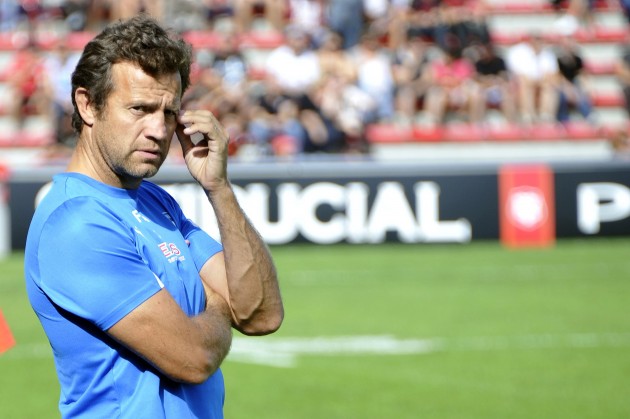On first introduction, Rene Ranger seems so laid-back you would be forgiven for checking his pulse. However, when the versatile, attacking back is asked about his cult hero status back in New Zealand and what he thinks of dispatches being sent back on his exploits with Montpellier in France, he sits up to set you straight.
“I guess some would say I’m a cult figure,” he replies, “actually, yes and no. People will ask about that and some people put high expectations on you coming to the Top 14, as a New Zealander – but I’m here to play. And when I’m playing I keep standards high and stay professional.”
That may seem like a prosaic answer from someone so known for shaking out sidesteps, bamboozling defences and playing by his own rules, but when you are known as ‘that guy’ in the South, it helps to skip in and remind people every so often that you are playing the game the right way.
As Montpellier embark on a second week in the new European Champions Cup against Glasgow Warriors, though, the concern for Ranger is that while his club are an outside bet when pushing for honours in France, they are still a step behind the bigger rugby firms on the continent.
“I would like to say we hope to win a title – and this is a club on the rise with brilliant coaching – but there is still a level we need to climb. Clermont, Toulouse, Toulon: they all play more of a southern hemisphere-style. There is no doubt that if we begin to play more like that we will be a force.”
Ranger has notably picked up his pace in talking about how rugby culture differs between the Kiwis and the French. It is said with traces of warmth, but what are things like in that respect with Montpellier?
“I have had to change my game quite a bit. In this team we have a few different defensive systems, which is quite hard to get your head around at times. It can get a little frustrating because the systems change depending on who you are facing and because squads are so big in France we chop and change personnel quite a lot. You are almost playing with a new player every week.
“I am not saying it isn’t good to have lads playing fresh, but it is hard to get a combination going with another player.”
Slam on the breaks, here. Ranger wouldn’t like the comparison, but he is somewhat of a rugby peacock that needs to strut. You would hear the moans drifting in from the southern hemisphere if this mazy attacker was shackled to an oppressive system. Say it ain’t so.
“Oh no, I’ve not changed, attacking-wise,” he claims, reassuringly. “I still love attacking, doing what I want. But the game here in France is very forward-oriented. We are slowly lifting the calibre of the team and we have some great attacking backs, but games are won when the forwards dominate.
“When this team gets momentum going it’s really exciting. Sometimes we just click and it’s brilliant. But when you are losing, Fabien (Galthie) gets down your neck, telling you what to do. I think that sometimes you’ve got to play what’s in front of you whereas French guys need to be told what to do.”
This centre respects his club, his coach and the desire of passionate fans to take over French rugby. However, this point is a worrying one for the nation as a whole. For the last few years, pundits and punters alike have been decrying the rugby-by-numbers and stodgy play trotted out by France and supposedly devised by head coach Philippe Saint-Andre.
If the man widely fancied as the nailed-on successor to Saint-Andre, Galthie, is also a fan of proscribing play, picking different sides weekly and perplexing players with several systems, maybe this is something that explains why France have fallen away as a force in recent seasons.
We may be on to something with the wider theme, within France, according to Ranger. “In New Zealand we trust players’ instincts. They are skilled enough to be left to make the right decisions. In France, even two or three years ago, they just played; they were willing to have a crack. It’s something not quite there anymore.”
Maybe Ranger’s maverick approach would scare some coaches, but when he sees the top three sides in France succeeding when they finally opt for attacking abandon, he feels a pang of familiarity.
He played like that back home, and he knows that if Montpellier eventually adopt that same swashbuckling style, they too could terrify Glasgow, Bath, their Champions Cup pool and anyone else in Europe. What a relaxing thought that must be.







